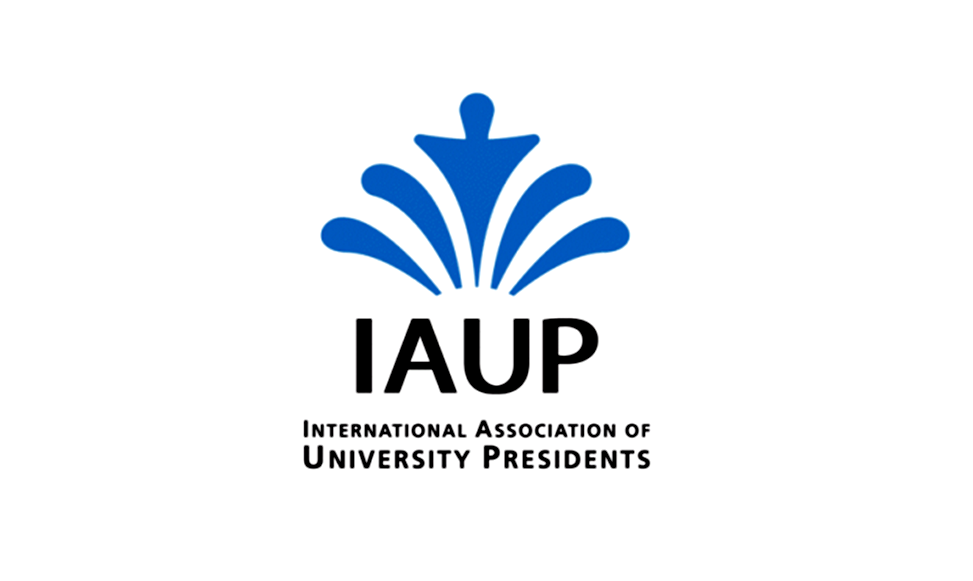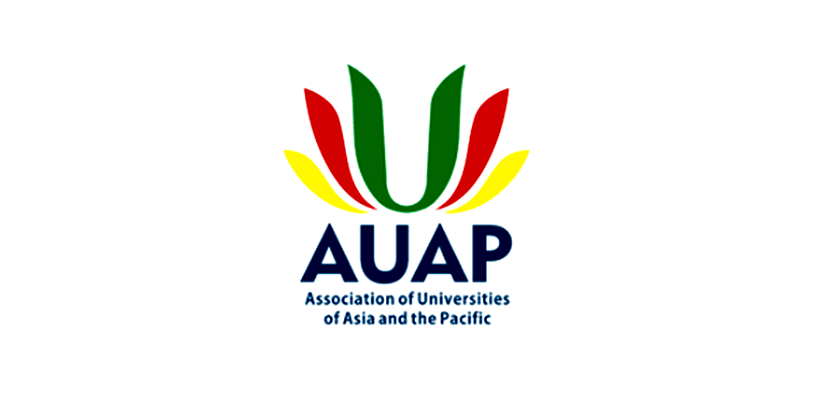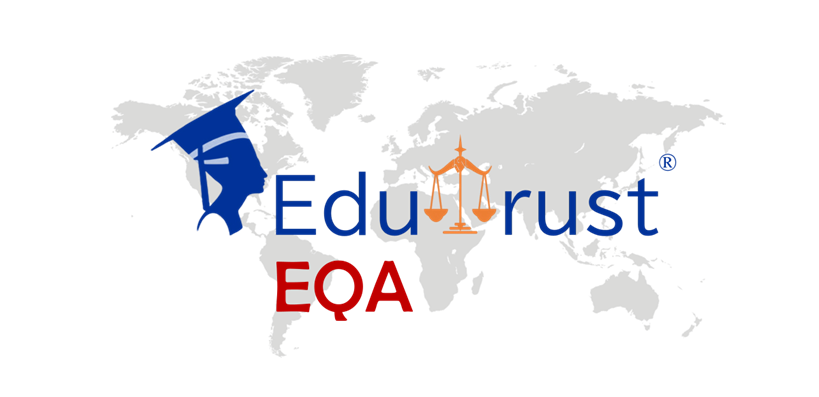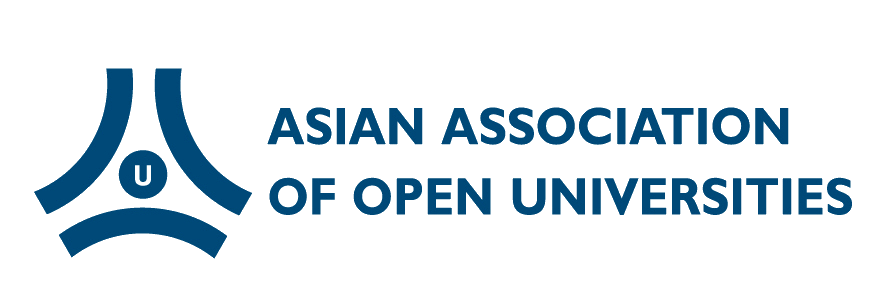College News
APSB's Granted Accredited Membership by the IAPUC

APSB's Granted Accredited Membership by the International Association of Private Universities and Colleges
10 May 2025 – The Asia-Pacific Business School (APSB) proudly announces its formal accreditation as a member institution of the International Association of Private Universities and Colleges (IAPUC), following a rigorous evaluation process that validates its alignment with global benchmarks for academic excellence, international collaboration, and commitment to sustainable development. This achievement integrates APSB into a prestigious global network comprising over 300 institutions across 65 countries, solidifying its position as a leader in private higher education.
About IAPUC: A Global Benchmark for Quality in Private Higher Education
APSB’s Accreditation Journey and Distinctive Strengths
1. Deep Integration into the Academic Consortium
2. Sustainability-Driven Curricular Innovation
3. Data-Driven Governance and Continuous Quality Improvement
Post-Accreditation Strategy and Global Mandate
- UN-Aligned Sustainable Development Initiatives: As part of the IAPUC University Consortium for Global Goals, APSB will contribute to vocational education empowerment in Sub-Saharan Africa and green entrepreneurship incubators in Southeast Asia, embedding social impact into business education.
- Global Standard-Setting Partnerships: Joining IAPUC’s Curriculum Standards Committee, APSB will co-develop the "Global Standards for Business Education in the Digital Age," advancing an inclusive quality framework for private higher education.
- Accelerated Transnational Collaboration: By 2025, APSB will launch dual-degree programs with 10 accredited institutions, focusing on Belt and Road education partnerships, aiming to increase international student enrollment to 25% by 2027.
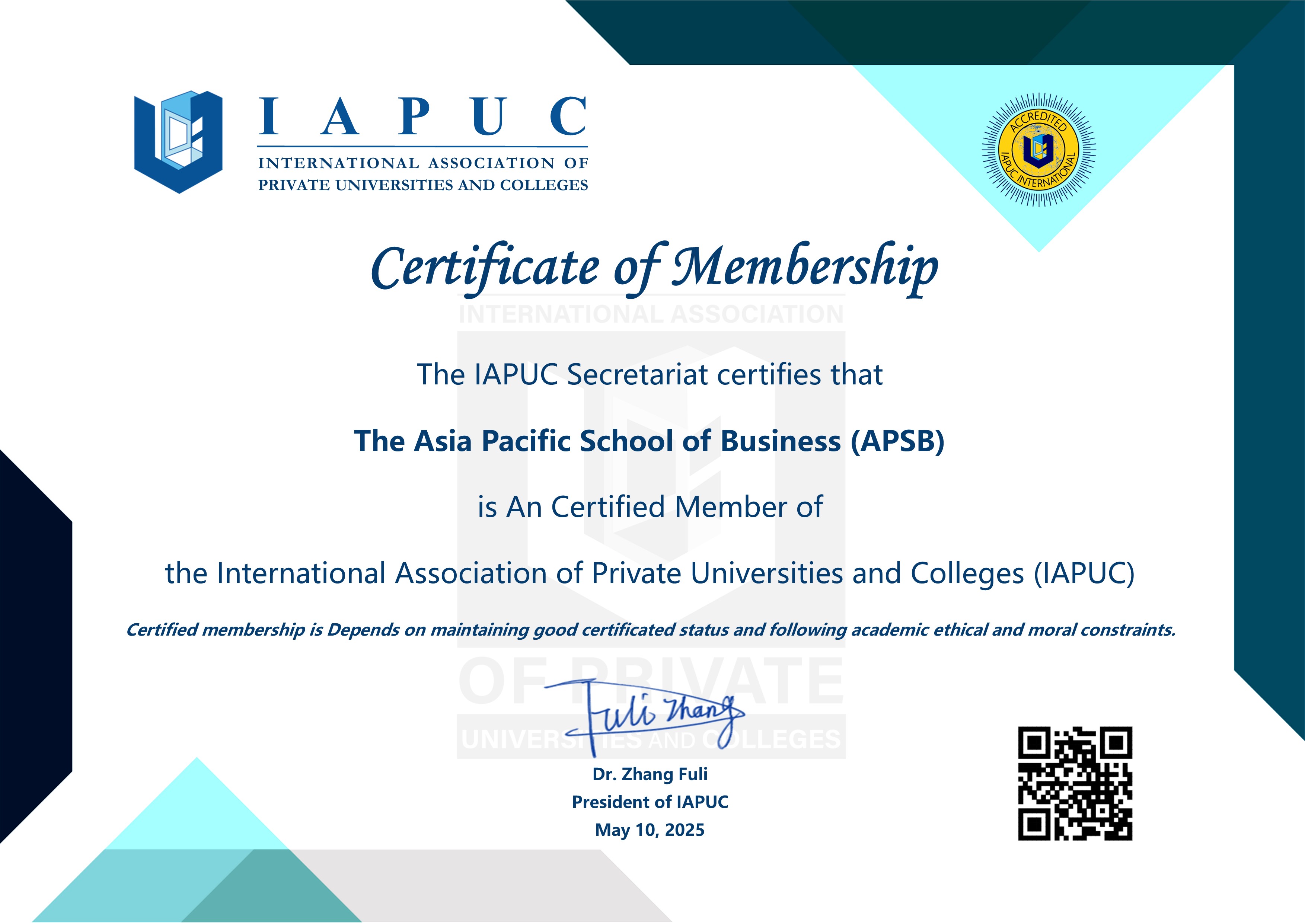
The International Association of Private Universities and Colleges: Fostering Academic Synergy and Global Standards
Founded in 2018 as a scholarly consortium, the International Association of Private Universities and Colleges (IAPUC) serves as a preeminent global network uniting 300+ private higher education institutions across 65 countries. Headquartered in Colorado, USA, this nonprofit alliance operates at the nexus of academic collaboration, quality assurance, and sustainable development, with a mandate to advance rigorous scholarly exchange and institutional excellence through structured international cooperation.
Academic Alliance and Governance Architecture
IAPUC functions as a deliberative academic community, anchored in a governance model that prioritizes collective decision-making through its General Assembly (comprising institutional delegates) and Academic Council (composed of senior scholars). This framework enables member institutions to co-design collaborative initiatives, such as the Global Academic Exchange Platform, which facilitates over 800 faculty visits and 5,000 student mobility programs annually. By fostering cross-border research consortia—currently managing 350 joint projects in fields like renewable energy and digital literacy—IAPUC reinforces its role as a catalyst for transnational scholarly innovation.
The Imperative of Academic Accreditation
A cornerstone of IAPUC’s mission is the development of its Global Quality Assurance Framework, a rigorous accreditation system aligned with UNESCO’s Guidelines for Quality Provision in Cross-Border Higher Education. This three-tiered model evaluates institutional performance in research output (measured via peer-reviewed publications), curricular relevance (assessed against labor market demands), and pedagogical innovation (including blended learning adoption). Accredited institutions gain enhanced international credibility, with 92% reporting increased student enrollment from non-home countries within three years of certification. The framework’s emphasis on evidence-based evaluation addresses the growing need for standardized quality metrics in an era of educational globalization, ensuring that private higher education maintains parity with public systems.
Curricular Integration and Credit Mobility
IAPUC facilitates seamless academic interoperability through its Global Credit Transfer System, which has harmonized grading scales and learning outcomes across 1,500+ courses offered by member institutions. This system enables students to transfer credits across borders with minimal friction, supported by a digital repository of course descriptors aligned to the European Credit Transfer and Accumulation System (ECTS) and the American Credit Hour. Concurrently, the alliance promotes SDG-Integrated Curriculum Development, requiring all member programs to embed at least two United Nations Sustainable Development Goals (e.g., quality education, climate action) into their curricula. To date, 200+ specialized programs—such as the "Sustainable Urban Development" master’s track co-designed by 12 institutions—demonstrate this commitment, blending disciplinary expertise with global civic responsibility.
UN-Aligned Sustainable Development Leadership
As a consultative partner to the UN Economic and Social Council (ECOSOC), IAPUC contributes to global policy dialogues on higher education’s role in achieving the SDGs. Its University Consortium for Global Goals coordinates 50+ impact projects, including renewable energy research labs in Sub-Saharan Africa and literacy programs in rural Southeast Asia, directly engaging 100,000+ community members annually. By advocating for private education as a sustainable development actor, IAPUC has influenced national policies in 22 countries to prioritize funding for green campus initiatives and socially oriented research, thereby bridging academic excellence with societal impact.
Conclusion
IAPUC exemplifies how academic alliances can drive standardization without homogenization, fostering a global ecosystem where institutional autonomy coexists with shared quality benchmarks. Through its focus on accreditation, credit mobility, and SDG-aligned curricula, the alliance not only enhances the comparability of private higher education but also positions it as a strategic partner in addressing humanity’s most pressing challenges. As a UN-engaged network, IAPUC demonstrates that scholarly collaboration, when anchored in rigorous standards and global responsibility, can amplify the transformative potential of private education in an interconnected world.


